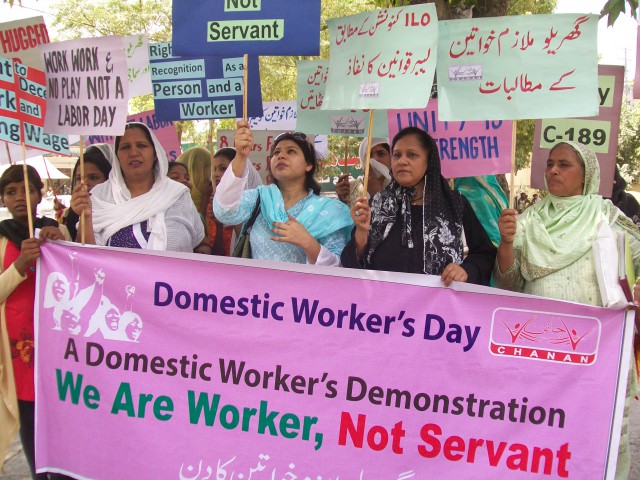By: Zara Amoon
In the intricate tapestry of Pakistan’s society, domestic work weaves a tale of exploitation, abuse, and invisibility. Despite its integral role in countless households, the plight of domestic workers remains largely concealed, tucked away within the folds of societal norms and economic disparities. This journalistic exploration aims to peel back the layers and illuminate the challenges faced by domestic workers in Pakistan, probing into the roots of the issue and avenues for change.
A Legacy of Colonialism:
The echoes of colonialism reverberate through Pakistan’s history of domestic work, where the practice of employing workers from lower socio-economic backgrounds was entrenched during British rule. Post-independence, this tradition persisted, perpetuating an informal and undervalued sector.
The Canvas of Domestic Work:
From scrubbing floors to nurturing children, domestic work in Pakistan encompasses a broad spectrum of tasks, predominantly carried out by women and girls from marginalized communities. Migration from rural to urban areas further underscores the socio-economic divides within the sector.
Challenges on the Home Front:
a. Exploitation and Abuse: Behind closed doors, domestic workers endure a spectrum of exploitation, from meager wages to physical and verbal mistreatment, and even sexual harassment, shielded by the absence of legal safeguards.
b. Legal Lacunae: The dearth of robust legislation tailored to protect domestic workers exacerbates their vulnerability, despite provincial efforts such as the Punjab Domestic Workers Act of 2019.
c. Marginalization: Societal devaluation of domestic work perpetuates a cycle of poverty and exploitation, compounded by gender, ethnic, and class biases that further marginalize these workers.
d. Access to Education and Healthcare: Denied access to basic rights, many domestic workers, including children, forfeit education and healthcare, perpetuating intergenerational poverty.
Towards a New Dawn:
a. Legal Reforms: Advocates clamor for comprehensive legal reforms to safeguard the rights of domestic workers, demanding fair wages, decent conditions, and avenues for recourse.
b. Awareness Campaigns: Education initiatives targeting employers, policymakers, and the public aim to challenge societal norms and foster respect for domestic workers’ contributions.
c. Economic Empowerment: Skills training and access to microfinance initiatives seek to empower domestic workers to demand better conditions and explore alternative livelihoods.
d. Social Support Networks: Community-based organizations offer solidarity, bargaining power, and access to essential services for domestic workers.
In Conclusion:
The narrative of domestic workers in Pakistan is one of resilience amidst adversity, entrenched in historical legacies and contemporary challenges. Transformative change demands concerted efforts from all quarters, as Pakistan strives towards a more equitable and just society, where the rights and dignity of all citizens, including domestic workers, are upheld.


